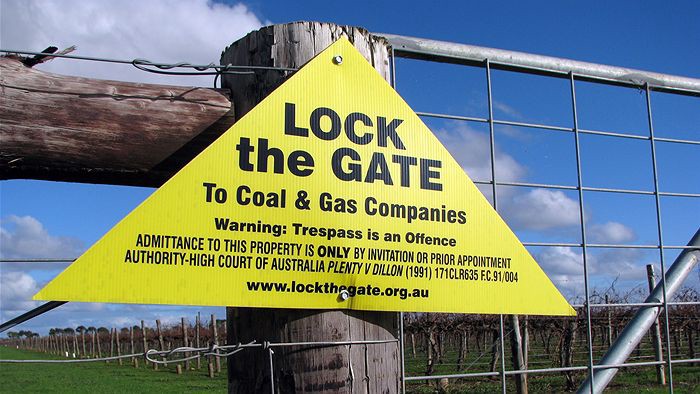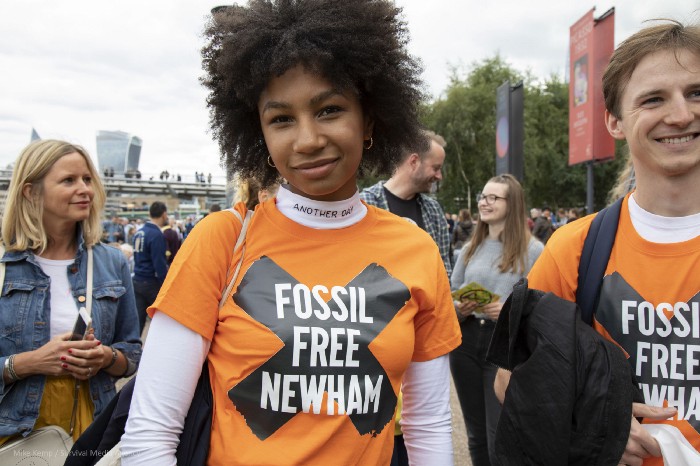Let’s create Fossil Free Zones!
by Fergus Green
Earlier this month, activists in Portugal declared the country “free of fossil fuel extraction”. This milestone was the result of years of direct struggle by local groups, united with national and international activists, against numerous government-supported proposals for extraction. In this latest victory, the two remaining proposals were abandoned by their proponents.
The Portuguese struggle is emblematic of social movements around the world that are rising up against the ceaseless expansion of fossil fuels. By campaigning against new coal mines, fracking wells and oil pipelines, or agitating for organisations to divest from fossil fuels, these activists seek not only to stop individual projects, or choke off particular sources of funds. They are also seeking to change social attitudes to fossil fuels and the fossil fuel industry; they are effectively promoting “anti-fossil fuel norms”.

The Portuguese climate movement is one of the first to win the struggle against fossil fuel extraction on a national scale. Image: Climáximo
With this goal in mind I have proposed the establishment of a system of Fossil Fuel Free Zones (FFFZs; a.k.a. Fossil Free Zones). A Fossil Free Zone is a geographic area characterised by the complete absence of fossil fuel exploration, extraction, transportation, intermediate treatment, and consumption activities. Of course, it would be difficult to cease all fossil fuel activity in one giant leap, which is why the system of Fossil Free Zones I envisage would also recognise achievement of the many “intermediate” zonal statuses defined by different fuel types and activity types, as per Figure 1 below. The system envisages a progression from the status quo to the ultimate status of being fossil fuel free.

Figure 1: Fossil Free Zones — activities and fuels prohibited by intermediate zones
The proposal is inspired by the international treaty-based system of Nuclear Weapon Free Zones that spans much of the globe. The earliest components of that system arose during the Cold War in response to public outcry over nuclear testing (which was then a “normal” government practice among nuclear-armed states) and amid wider concerns over the risks posed by nuclear weapons. This system, along with other international legal institutions, such as the Nuclear Non-Proliferation Treaty, helped to strengthen an emerging global “anti-nuclear weapon norm”. Today, most governments and their citizens see nuclear testing — and nuclear weapons generally — as morally wrong, and they regulate them accordingly.

Fossil fuel facilities may soon be regarded as we regard nuclear weapons: as deeply immoral.
Image: https://ugc.futurelearn.com
But it was the activism of mass movements in many parts of the world, from the small islands of the South Pacific to the capital cities of the nuclear powers, that catalysed this important normative shift, and pushed governments to take policy and legal action.
The spread of anti-fossil fuel norms, too, will accelerate when new legal institutions are introduced that delegitimise and restrict fossil fuels — like the proposed Fossil Fuel Non-Proliferation Treaty. But given the power of incumbent fossil fuel interests to block such institutional reforms at the international level and within many countries, mass support for such reforms must first be built by the climate-action movements that have emerged in recent years.

The Lock the Gate movement has created a large number of small Fossil Fuel Supply Free Zones in Australia. Image: https://www.3cr.org.au/
With this movement-building imperative in mind, an attractive feature of Fossil Free Zones is that participation is possible at multiple scales — in fact, at any scale. Notably, it can be undertaken by sub-national governments and non-government groups, where moving beyond fossil fuels is often easier than at the level of national governments.
For the many groups and jurisdictions that have already achieved relevant milestones — banning fracking, preventing pipelines, or phasing out coal, say — they would simply need to declare their achievement of the relevant Fossil Free Zone status. For those working toward such goals, they could publicly declare their intent to reach the relevant status.

Scotland, host of COP26, is already a Fracking Free Zone. Image: http://redgreenandblue.org/
The concept also has great potential for groups that do not yet identify as champions of a fossil free future. One could easily envisage many local and provincial governments attaining “coal free” status relatively quickly, given the rapid pace of renewable energy expansion. One could equally envisage Fossil Free Streets, Companies, Football Clubs, Schools and Universities becoming markers of social pride and status in a decarbonising world.
Think about the groups and communities of which you are a member. Are some of them already fossil free (or “coal supply free”, or “gas free”, etc.)? Why not declare that fact to the world? Now think about what steps you could take to get to the next level. Can you imagine a path to each group becoming fossil free?

Everyone is invited to join the movement and create a Fossil Free Zone. Image: Mike Kemp
For those in need of inspiration, creative examples abound: in the US, hundreds of municipalities have opposed offshore oil and gas drilling and cities are prohibiting new fossil gas connections in houses; Germany’s Klimawende von unten uses direct democracy tools to make their cities coal free; Australia’s Lock the Gate Alliance has restricted rural coal and gas extraction; Mexico is home to many frack-free municipalities; and Canada’s fossil free bars are financing the resistance to oil pipelines.

Being completely fossil free is the highest achievement in the categorization of Fossil Free Zones. Image: https://gofossilfree.org/
Fossil Free Zones create opportunities everywhere for “small wins” that reinforce hope and make it attractive to join the movement to end fossil fuels. As the movement grows, and anti-fossil fuel norms are strengthened, moral pressure will become concentrated on those who are lagging behind or free-riding. Such moral pressure also flows “upwards”: as more and more non-state and sub-national entities within a country achieve and publicly declare their freedom from fossil fuels, the more politically feasible it becomes for that country itself to achieve the same status.
So let a thousand Fossil Free Zones bloom!
Dr. Fergus Green is a Postdoctoral Researcher at the Ethics Institute at Utrecht University. His discussion paper setting out the FFFZs concept in more detail was published by The Australia Institute, and is available from https://www.tai.org.au/content/fighting-climate-change-fossil-fuel-free-zones
